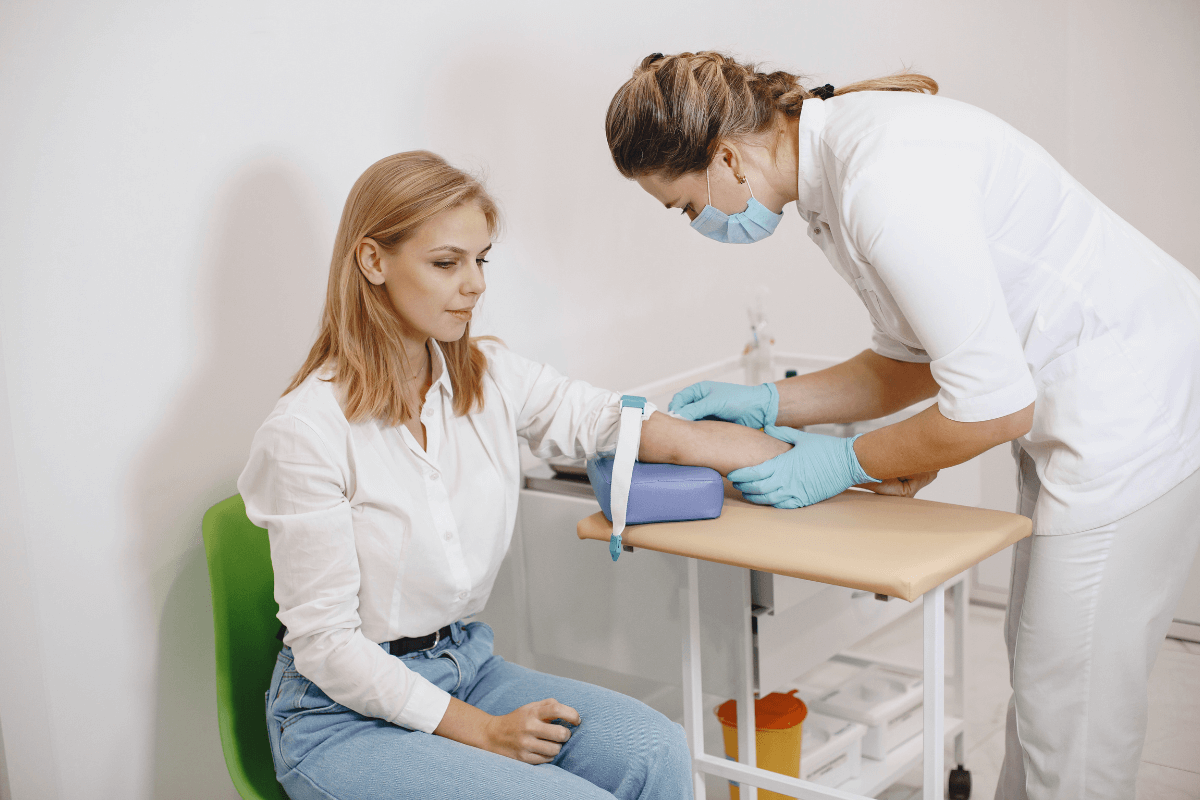When you receive professional help for a mental health condition and/or a substance use disorder (addiction), one of your treatment team’s first decisions will involve determining which level or levels of care are right for you. Understanding the differences between these levels, such as PHP vs. IOP, will allow you to play an informed role in this process.
Learn more about our Atlanta mental health programs or call us now at 866-859-3442.
What Are PHP and IOP?
Partial hospitalization programs (PHPs) and intensive outpatient programs (IOPs) are two levels of outpatient care for people who are receiving treatment for mental and behavioral health concerns.
Moving from most to least restrictive environment, the standard continuum of care includes:
- Inpatient treatment
- Residential treatment
- Partial hospitalization program
- Intensive outpatient program
- Outpatient therapy
At the first two levels listed above, patients live at the center where they are receiving care. Partial hospitalization programs and intensive outpatient programs do not have residential components, though some centers offer housing options for patients who don’t have optimally supportive home environments.
Partial Hospitalization Program
PHPs share many characteristics with residential programming. Patients typically participate in full days of treatment, follow customized plans, and engage in a variety of therapies and support services.
Elements that may be included in treatment at the PHP level include:
- Individual and group psychotherapy
- Family therapy, education, and support
- Cognitive behavioral therapy (CBT)
- Dialectical behavior therapy (DBT)
- EMDR and other trauma-focused therapies
- Somatic therapy
- Holistic therapies
- Therapeutic recreation
Since patients are at the center from morning through late afternoon, PHPs usually offer lunch as well as scheduled supervised breaks.
Most PHP patients step down to this level for additional support after spending time in an inpatient or residential program, though some enter treatment directly at the PHP level.
Intensive Outpatient Program
As is the case with PHPs, many (but by no means all) IOP patients have completed treatment at one or more higher levels of care.
IOPs usually offer a few hours of treatment each day, and patients typically don’t attend sessions every day. This gives them ample opportunities to practices skills such as managing their symptoms, coping with stress, and resolving conflicts in real-world scenarios.
Then, when the program is back in session, patients return to a safe and supportive environment where they can process their experiences and receive focused feedback from their treatment team.
In most IOP, the majority of treatment is provided in group sessions, though other services and activities may also be included.
Differences Between PHP vs. IOP
Key differences between PHPs vs. IOPs include which types of patients each program is designed to serve, the amount of time patients spend in treatment, the types of treatment they receive, and how much the programs cost.
Patient Profile
At treatment centers such as Valor Behavioral Health, admissions decisions are made on a case-by-case basis following a thorough review of each prospective patient’s strengths and needs.
This means that it’s impossible to establish a granular, detailed description of the differences between those who receive care in PHPs vs. IOPs, but the programs are designed to serve certain general patient populations:
- PHPs usually (but not always) provide care to people who are stepping down after completing an inpatient or residential program. These are patients who need full days of additional care, but who no longer require round-the-clock support.
- IOPs are best for people who have a safe home environment and solid personal support network, and who are preparing to transition out of treatment. Often, but not always, patients step down to IOP after completing treatment at the residential and/or PHP levels.
Time in Treatment
The most obvious difference between PHPs vs. IOPs is the amount of time patients participate in treatment on a daily and weekly basis:
- A typical treatment day in a PHP usually lasts five to six hours, with patients expected to attend sessions five (or sometimes six) days per week. This equates to around 25-36 hours of care each week.
- IOP usually offer about three hours of care per day, with patients taking part in therapy sessions two to five days per week. Depending on each patient’s needs, they may be at the treatment center for six to 15 hours per week.
Types of Therapy
With more hours of daily and weekly treatment, PHPs have the time to offer a broader scope of services than IOPs do:
- In most PHPs, individual and group therapy are usually core components, with services such as skill-developing sessions, experiential and/or holistic therapies, and psychoeducation often also incorporated into treatment.
- Group therapy is usually the main method of treatment at the IOP level, with some centers also offering individual sessions and certain additional options.
Cost
The cost of care can vary from one treatment center to the next, but fees associated with PHPs are typically higher than IOPs. This is due primarily to PHPs offering more daily and weekly hours of care, as well as a wider scope of services.
However, you shouldn’t let financial concerns prevent you from seeking the best treatment for yourself or a loved one. Most insurance policies cover treatment for mental health concerns and substance use disorders, and many centers will work with you and your family to help you find the solutions that fit your budget.
How to Find the Right PHP or IOP
When you are evaluating a PHP or an IOP, remember that every treatment center is unique, and none are perfect for everyone. Your goal should be to find the facility whose services and overall approach to treatment best align with your needs, goals, and expectations.
Asking the following questions can help you find the right place for you:
- Can you describe your general approach to treatment?
- What types of disorders do you specialize in treating?
- What types of therapies and support services do you offer?
- How will you determine which programs and services are right for me?
- What are the qualifications of the people who will be providing my care?
- How long will I need to remain in treatment?
- What are your criteria for a successful treatment experience?
- Do you provide discharge planning and/or aftercare services?
- Can I tour your treatment center?
- Does your center accept my insurance?
Learn More About PHP vs. IOP Treatment in Georgia
Valor Behavioral Health is a trusted source of customized outpatient programming for individuals with mental illnesses and substance use disorders.
Our continuum of care includes age-appropriate PHPs and IOPs for adolescents and adults, as well as an evening IOP and a virtual IOP. We also offer alumni programming and sober living residences.
To learn more about how we can help you or a loved one, or to schedule a free consultation, please visit our Admissions page or call us today.














